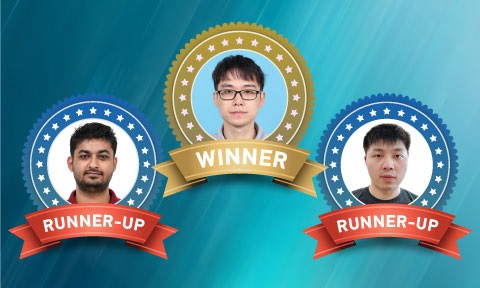Shaping the Future of Responsible AI: CCDS at the AI Symposium 2025
The AI Symposium 2025, jointly organised by Nanyang Technological University (NTU) and the Hungarian Research Network (HUN-REN), convened some of the most forward-thinking minds in artificial intelligence. Held in Budapest, the three-day event spotlighted the urgent need for globally responsible, human-centred AI; and NTU’s College of Computing and Data Science (CCDS) played a defining role in charting that course.

At the heart of the symposium was a keynote by Professor Luke Ong, Vice President (AI & Digital Economy) and Dean of CCDS, who presented a bold, theoretically grounded vision for Safe Reinforcement Learning.
“If we want AI to serve society, we must design systems that are not only intelligent, but also interpretable and accountable. The future of AI lies not just in scale, but in responsibility; and that requires deep collaboration across disciplines and borders,” said Prof Ong.
Reinforcement Learning: An AI Safety Perspective
Prof Ong’s talk introduced a novel approach that uses Linear Temporal Logic (LTL) to specify both objectives and safety constraints in reinforcement learning; transforming AI decision-making into a constrained optimisation problem grounded in formal logic. His research tackles long-standing issues like reward hacking and lack of interpretability, offering a clear path toward safe-by-design reinforcement learning.

He also outlined a broader roadmap for AI safety science, touching on:
Automated red teaming to uncover vulnerabilities
Machine unlearning to remove unsafe capabilities
Mechanistic interpretability for understanding LLMs
Formal verification frameworks to ensure guaranteed safe AI
This keynote underscored CCDS’s unique ability to bridge deep theory, practical implementation, and ethical foresight; a trifecta essential for the next phase of AI development.
Keynotes from CCDS Faculty
AI for a Sustainable Digital Future
Prof Wen Yonggang, President’s Chair of CCDS, Associate Provost (Graduate Education), and Dean (Graduate College) addressed the environmental implications of deep learning. He noted that while AI contributes to environmental burden, it also holds promise for sustainable solutions. Prof Wen emphasised the importance of building systems that are not only more efficient, but also environmentally friendly and aligned with global sustainability goals as he urged researchers to rethink how we AI systems are built and used.

Foundation Model Fusion
Prof Tao Dacheng, distinguished University professor at CCDS, delivered a keynote on the evolution of AI into the era of Foundation Models. His team’s research focuses on fusion and alignment of multiple foundation models, allowing accelerated training at a fraction of the traditional cost; achieving comparable performance with greater efficiency.

Human-Like Perception in Machines
Prof Lin Weisi, CCDS Associate Dean (Research) and President’s Chair Professor in computer science, explored how AI systems can better mimic human perceptual processes, particularly in visual signal interpretation. His team has developed novel AI architectures that improve human-machine interaction and significantly reduce computational load.

Brain-Computer Interfaces (BCI)
Prof Guan Cuntai, CCDS Deputy Dean and President’s Chair Professor in computer science and engineering, presented cutting-edge research in non-invasive brain-computer interfaces, demonstrating clinical impact across several domains:
Enhancing motor skills in stroke patients
Improving focus in children with ADHD
Decoding speech in individuals who have lost the ability to speak
Alleviating anxiety symptoms through signal-based interventions

Generative AI & Computer Vision
Prof Loy Chen Change, President’s Chair Professor in computer science, delivered a keynote that challenged conventional paradigms in computer vision, proposing a generative-first approach that enhances data diversity, supports open-vocabulary reasoning, and unifies perception with synthesis.

Leading Across Domains
Beyond the keynote presentations, CCDS faculty anchored multiple thematic sessions:
AI in Healthcare and Bioinformatics
Prof Jagath Rajapakse presented a suite of explainable and generative tools for:
Functional MRI interpretation
Drug response prediction using gene–compound data
New molecule generation via GenAI
He also highlighted CCDS’s involvement in international efforts to build AI-enabled, integrated healthcare systems; alongside researchers from UCL and Hungary.
Graph Science and Quantum AI
Prof Cong Gao explored cohesive subgraph algorithms and graph neural networks, with applications in urban mobility modelling and traffic prediction; even extending to quantum-enhanced methods.
Uncertainty & Explainability
Prof Daniel Paulin, who also served as one of the programme coordinators for the symposium, introduced a new Bayesian sampling method for uncertainty quantification in AI diagnostics. His work showed significant gains in pneumonia detection accuracy from X-ray images; a critical step toward trustworthy clinical AI.
 L-R: Barbara Bálint (HUN-REN), András Benczúr (Institute for Computer Science and Control, Hungary), Daniel Paulin and Luke Ong.
L-R: Barbara Bálint (HUN-REN), András Benczúr (Institute for Computer Science and Control, Hungary), Daniel Paulin and Luke Ong.
“What stood out to me was the consistently high quality of the talks, with excellent applications in impactful domains like healthcare, computer vision, and automation through vision–language models,” said Prof Paulin.
“Speakers didn’t just present technical work; they shared their intuition and forward-looking perspectives, which made the sessions more accessible and engaging. The fact that attendance remained strong even on the final day; a Saturday; speaks volumes about the value this symposium brought to participants.”
Multimodal Agents and Trading Systems
Prof Bo An showcased intelligent agents powered by Visual-Language Models (VLMs) capable of navigating complex software and outperforming baselines in financial trading environments.

A Global Dialogue: and a Leadership Role
The symposium featured cross-cutting discussions on:
Trustworthy and sustainable machine learning
Security and adversarial robustness
AI governance and policy frameworks
CCDS’s strong faculty presence – across keynote, panels, and research showcases – signalled not just technical excellence, but a clear commitment to leading the global conversation on safe, fair, and impactful AI.
From theoretical breakthroughs to real-world applications, CCDS demonstrated that thought leadership in AI isn't just about being present in global dialogues.
It’s about shaping them.

Back row (L-R): Daniel PAULIN, Dacheng TAO, Atsushi NITANDA, Chen Change LOY
Front row (L-R): Juan-Pablo ORTEGA, Jagath RAJAPAKSE, Luke ONG, Yonggang WEN, Weisi LIN, Cuntai GUAN

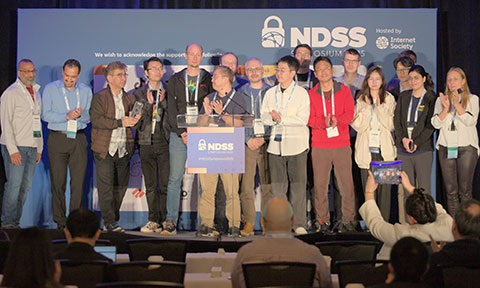
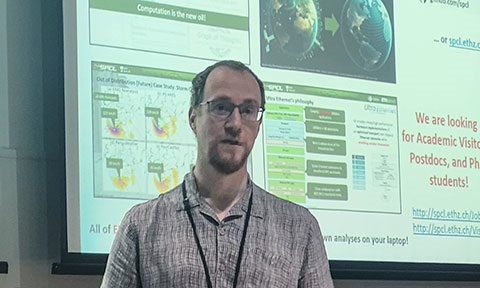
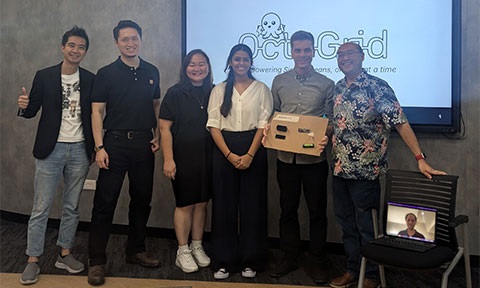
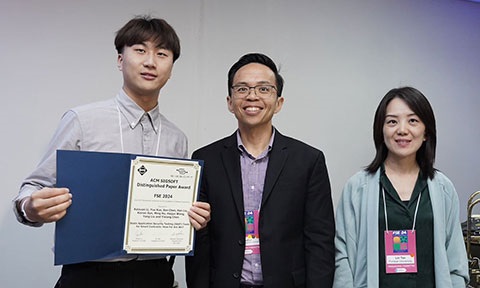
7c137751-1960-4051-9719-3e607d92ca71.tmb-listing.jpg?Culture=en&sfvrsn=9cfc5323_1)
